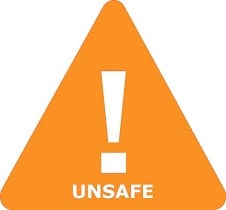Is glycyrrhizic acid Safe in Breastfeeding
Question
I am a breastfeeding mother and i want to know if it is safe to use glycyrrhizic acid? Is glycyrrhizic acid safe for nursing mother and child? Does glycyrrhizic acid extracts into breast milk? Does glycyrrhizic acid has any long term or short term side effects on infants? Can glycyrrhizic acid influence milk supply or can glycyrrhizic acid decrease milk supply in lactating mothers?
glycyrrhizic acid lactation summary

- DrLact safety Score for glycyrrhizic acid is 5 out of 8 which is considered Unsafe as per our analyses.
- A safety Score of 5 indicates that usage of glycyrrhizic acid may cause serious side effects in breastfed baby.
- Our study of different scientific research indicates that glycyrrhizic acid may cause moderate to high side effects or may affect milk supply in lactating mother.
- Our suggestion is to use safer alternate options rather than using glycyrrhizic acid .
- It is recommended to evaluate the advantage of not breastfeeding while using glycyrrhizic acid Vs not using glycyrrhizic acid And continue breastfeeding.
- While using glycyrrhizic acid Its must to monitor child for possible reactions. It is also important to understand that side effects vary largely based on age of breastfed child and time of medication in addition to dosage.
- Score calculated using the DrLact safety Version 1.2 model, this score ranges from 0 to 8 and measures overall safety of drug in lactation. Scores are primarily calculated using publicly available case studies, research papers, other scientific journals and publically available data.
Answer by Dr. Ru: About glycyrrhizic acid usage in lactation
Root of leguminous herb is used. Content: essential oil, flavonoids, tannins, saponins, hydroxi-coumarins.... Unproven effects: anti-ulcerative and expectorant. Indication after Commission E of German Ministry of Health: gastritis, gastric ulcer, cough, bronchitis. Because of mineralocorticoid effects, Pseudoaldosteronism, Hypokalemic palsy, Hypernatremia, Edema, Heart arrhythmias and Arterial Hypertension, a longstanding use or abuse of licorice may be a cause of severe health disorders. May be a cause of abortion and premature labor if taken while pregnancy. Since it has anti-prolactin and estrogenic effects, decrease of milk production can occur within the first weeks after birth. Reportedly, one case of hyperprolactinemia has occurred. There is no proof on its galactagogue effect. Glycyrrhizin is responsible of many effects of Licorice which is excreted in small amount into breast milk. Two infants younger than one months were severely intoxicated (lethargy) after their mothers had drunk an daily average of 2 liters of a beverage containing a mixture of Licorice, Fennel, Anise and Goat's rue. It was assumed to be related to anethol contained in the fennel and anise.
Alternate Drugs for Phytotherapy, Systemic Use
Chasteberry(Unsafe)
Chamomile(Safe)
Echinacea(Low Risk)
Alfalfa(Unsafe)
Dong Quai(Low Risk)
Cranberry(Safe)
Licorice(Unsafe)
Rhubarb(Low Risk)
Lavender(Low Risk)
Sweet Briar(Safe)
Barberry(Dangerous)
Carob(Safe)
Common Poppy(Unsafe)
Angelica(Unsafe)
Star Anise(Dangerous)
Mugwort(Unsafe)
Edible Burdock(Low Risk)
Box(Unsafe)
Boldo(Unsafe)
Bromelains(Safe)
Calaguala(Safe)
Caralluma(Low Risk)
Carrageen(Low Risk)
Horse Chestnut(Safe)
Blue-Cohosh(Dangerous)
Indian Pennywort(Safe)
Squisandra(Low Risk)
Prickly Pear(Safe)
Black-Cohosh(Unsafe)
Horsetail(Unsafe)
Colocynth Pulp(Dangerous)
Ergot Fungus(Dangerous)
Ephedra(Unsafe)
Steviol(Safe)
Eucalyptus(Unsafe)
Eyebright(Safe)
Flowers(Low Risk)
Fucus(Unsafe)
Goat´s Rue(Unsafe)
Bearberry(Unsafe)
Guarana(Low Risk)
Devil’s Claw Root(Low Risk)
Herniary(Low Risk)
St. John´s Wort(Safe)
Hyssop(Unsafe)
Syrup Of Ipecac(Low Risk)
Jin Bu Huan(Dangerous)
Kava Kava(Dangerous)
Clubmoss(Unsafe)
Maca(Safe)
Common gromwell(Unsafe)
Nux Vomica(Dangerous)
White Nettle(Safe)
Papain(Low Risk)
Passion Flower(Low Risk)
African Cherry(Dangerous)
Scots Pine(Unsafe)
Pycnogenol(Safe)
Pennyroyal(Unsafe)
Primrose(Safe)
Radish(Safe)
Ironwort(Low Risk)
Liquorice(Unsafe)
Rooibos(Safe)
Rose Hip(Safe)
French rose(Safe)
Butcher´s Broom(Safe)
Willow(Safe)
Soy(Low Risk)
Herbal Teas(Low Risk)
Rock Tea(Low Risk)
Lime Flower(Safe)
Tormentil(Safe)
Meadow-Sweet(Low Risk)
Golden Rod(Safe)
Sarsaparilla(Low Risk)
Sweet Flag(Unsafe)
Saw palmetto(Low Risk)
Common gum cistus(Low Risk)
Cat's Claw(Low Risk)
Milk Vetch(Low Risk)
Chinese angelica(Low Risk)
White Mulberry(Low Risk)
Di Huang(Low Risk)
Zi Wan(Unsafe)
Dang Shen(Low Risk)
Reishi(Low Risk)
Glycyrrhizin(Unsafe)
American cranberry(Safe)
Carrageenan(Low Risk)
Carrageenin(Low Risk)
Verbena officinalis(Low Risk)
Passion Vine(Low Risk)
Chaste Tree(Unsafe)
Sweet Cane(Unsafe)
Sweet root(Unsafe)
Irish Moss(Low Risk)
Bromelain(Safe)
Bromelin(Safe)
Acorus calamus(Unsafe)
